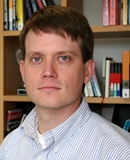I’m attending the Global Philanthropy Forum this week, held just outside San Francisco. Last year, as Laura Starita reported, the discussion was all about public-private partnerships. This year it’s a back-to-basics outlook focusing on basic health, food and water. Here are some brief thoughts on what I heard on the first day.
→ In one of the opening plenary ‘conversations’, Tim Brown of IDEO (which for some reason seems to be all the rage in philanthropic circles these days) responded to a questions about finding opportunities where good design could make a difference by saying (and here I use quotations loosely): ‘The honest truth is that most of us are not very good at solving our own problems.’ While I’m not sure I entirely agree, I think it is an interesting point to consider, particularly when it comes to the romanticization of the poor. Over the last decade there’s been a huge movement toward empowering the grass roots and adopting local solutions, and moving away from ‘top-down’ approaches. While there is obvious wisdom in this movement and in general we endorse it, Brown’s comment reminded me that there are many problems where there is not the capacity or resources for real local solutions to be developed. We can’t just assume that the poor will develop the best solutions for their own problems, just like we are often not very good at finding solutions to our own problems.
→ The third opening plenary was focused on food security. Filling in for a volcano-stranded panellist, Neal Keny-Guyer of Mercy Corps noted the huge problems associated with food aid: ‘We always underestimate how hard it is to turn off food aid, and how much damage [food aid] does to small local farmers.’ He noted as well the long-term damage to local food industry infrastructure that comes along with food aid – markets (and therefore access to markets) are destroyed, food distribution and storage infrastructure is disrupted, and incentives for land use reform and land conservation disappear. It struck me that no one disagreed with his comments; they were not in the least bit controversial. Which begs the question of why food aid still exists in its historic form. Do you know anyone who thinks the system is worth preserving or does more good than harm?
→ A few other choice quotations from the food security plenary:
‘Food security has disappeared from the headlines for the last 30 years because we won the battle. But we mistook winning the battle for winning the war.’ Robert Ziegler, International Rice Research Institute
‘It’s not just a question of funds and technology for helping people with food security. In India the problem is that the people who need it cannot access the help that is already there.’ Soumen Biswas, Professional Assistance for Development Action
‘It’s important to understand that there are no ‘quick wins’ in the area of food security that are not based on a decade or more of work.’ Robert Zeigler, International Rice Research Institute
→ The tagline of the conference is ‘Defy Barriers, Effect Change’. There was a huge sour note at the end of the day that illustrated how deeply embedded some of the barriers that need defying are. Immediately after a panel session on access to water, there was a reception that featured, among the snacks and drinks, a table of bottled water. And not just any bottled water, but Fiji bottled water. Not 40 feet away from this table, the conference was giving away reusable water bottles. And yet, no one seemed to notice that the conference was actively undermining its own theme.
UPDATE: The individual bottles of water have disappeared, replaced by five-gallon dispensers and paper cups. Progress?
Tim Ogden is editor-in-chief of Philanthropy Action and an executive partner of Sona Partners. Emailtimothy.ogden@philanthropyaction.com
To read Tim’s blog go to http://www.philanthropyaction.com




Comments (0)